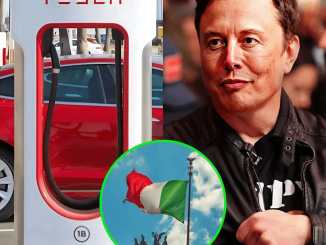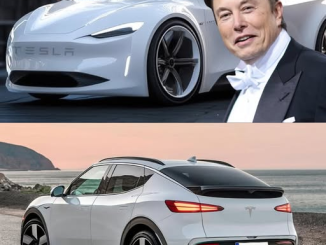
In a world constantly transformed by innovation, the story of Noland Arbaugh stands as a powerful testament to the extraordinary potential of technology—especially when driven by visionary minds like Elon Musk.
Noland, a 30-year-old from Arizona, experienced a life-altering event in 2016 when a diving accident left him paralyzed from the shoulders down. For eight long years, he lived in near-total dependence—unable to move, work, study, or even enjoy the video games he once loved. But everything changed in January 2024, when Noland became the first person to receive a brain chip implant from Neuralink, Musk’s neurotechnology company.
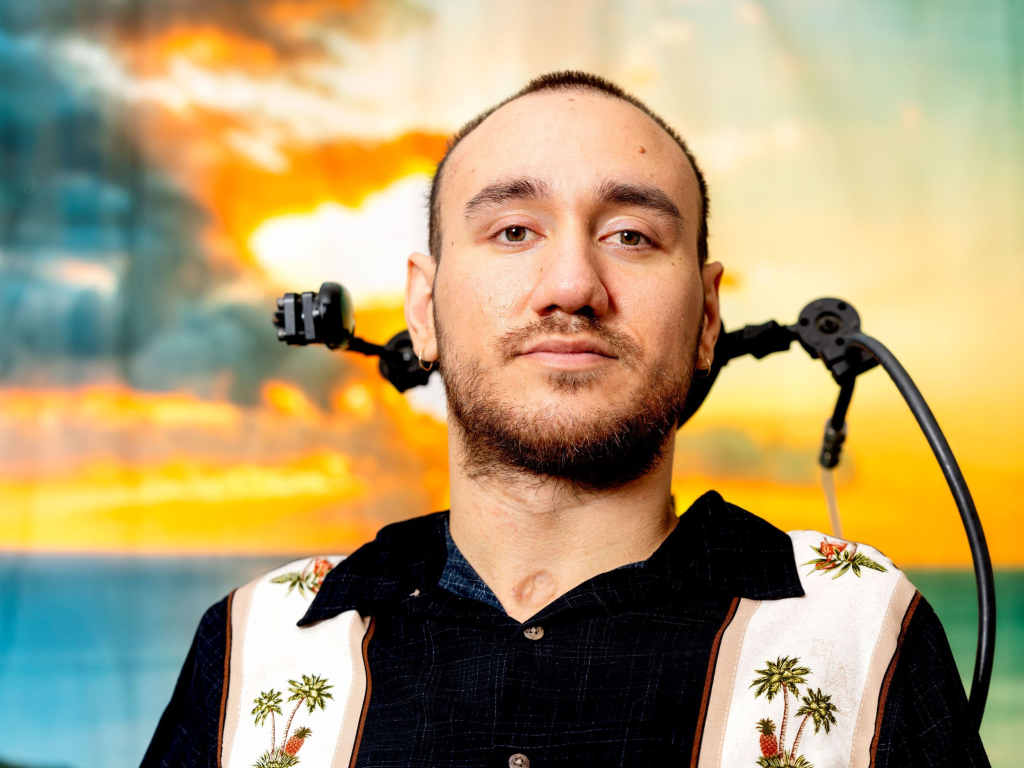
The idea of controlling a computer with nothing but thoughts may seem like science fiction—but for Noland, it’s now a lived reality. Thanks to a small chip implanted in his brain, he can translate thoughts into digital actions. For someone who once feared he’d lost all independence, it was a moment of rediscovered hope.
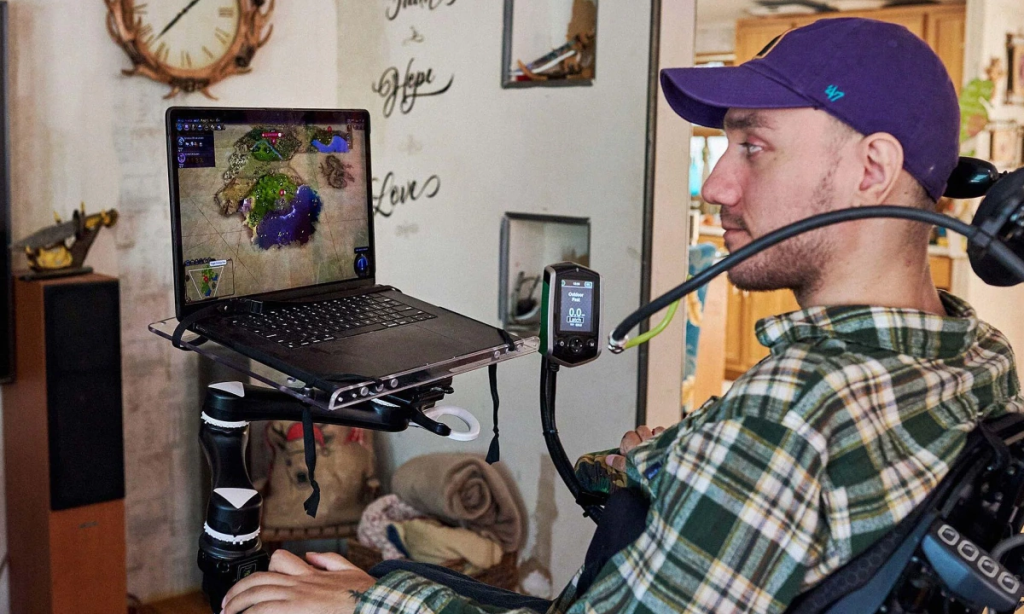
“You have no control, no privacy. It’s hard,” Noland recalled of his post-accident life. “You have to rely on others for everything.” His words reflect the emotional toll of complete physical dependence—a burden that few truly understand. But Neuralink’s brain-computer interface (BCI) is helping lift that burden. This device reads tiny electrical signals in the brain—the same ones that occur when a person imagines movement—and translates them into computer commands.
While scientists have studied BCI technology for years, Musk’s involvement has accelerated its development and catapulted it into the global spotlight. His name brings not only recognition, but also funding, attention, and ambition.
Still, Noland insists the focus shouldn’t be on Musk or himself. “The science is what matters,” he said, emphasizing the importance of the mission over fame. He joined the Neuralink trial fully aware of the risks, driven by the hope that even failure could lead to valuable discoveries. “If something terrible happened, I knew they would learn from it,” he shared.

After the surgery, the first sign of success was extraordinary—Noland could move a computer cursor just by thinking about moving his fingers. “Honestly, I didn’t know what to expect. It sounded so sci-fi,” he admitted. But as he watched it work in real time, the moment was both surreal and empowering.
Since then, Noland’s control has improved dramatically. Today, he’s doing something he once thought impossible: playing and winning video games again. “I grew up playing games,” he said. “Now I’m beating my friends, which really shouldn’t be possible—but it is.”
Behind the scenes, Elon Musk’s role has drawn both admiration and criticism. While Musk publicly described the early results as showing “promising neuron spike detection,” Noland says the billionaire has been deeply involved and enthusiastic in their private conversations.
Even so, Noland stresses that Neuralink’s breakthroughs shouldn’t be reduced to Musk’s reputation. “It’s not an Elon Musk device,” he insists. To him, this is about lives, not legacies.
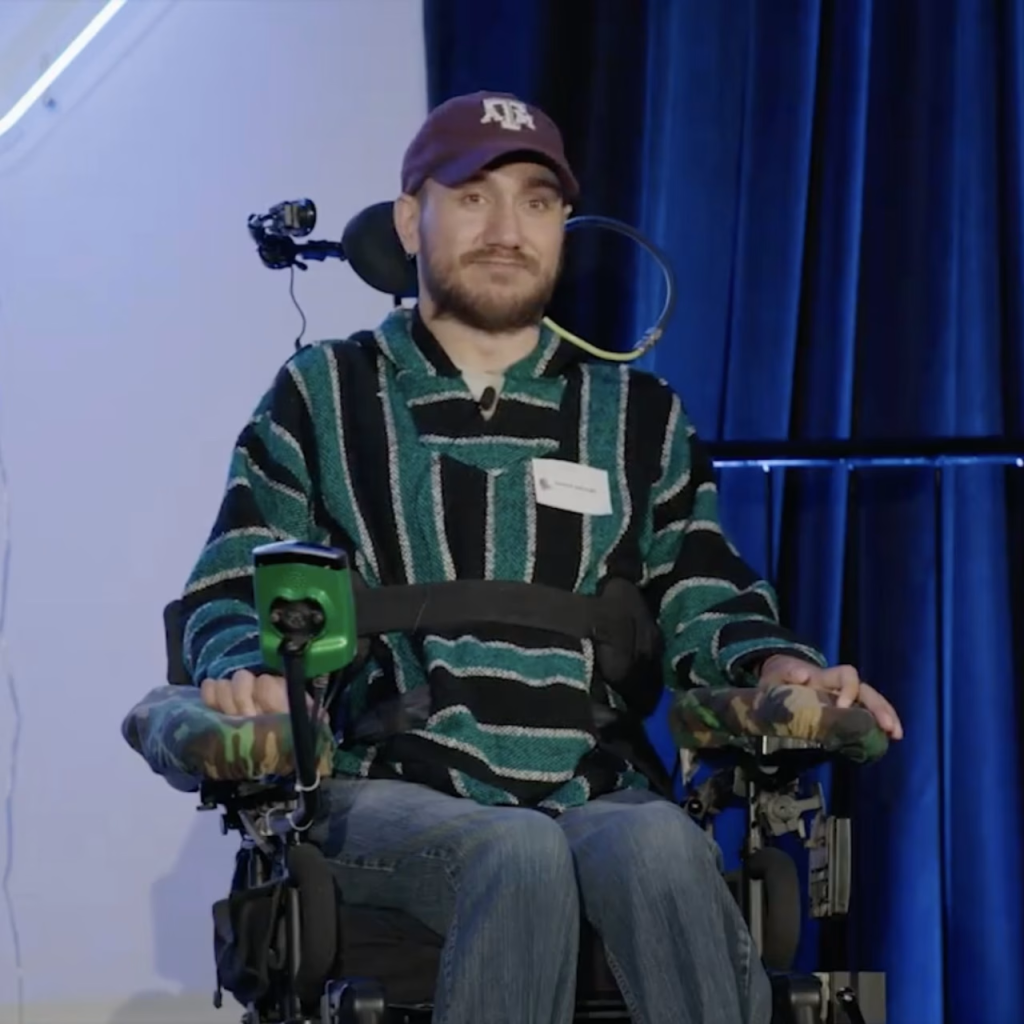
There have been setbacks, too. At one point, the chip temporarily stopped working, cutting off Noland’s access to the digital world. “That was really upsetting,” he said. “I didn’t know if I’d be able to use Neuralink again.” Fortunately, engineers fixed the issue—and even improved the chip’s performance.
For Noland, this is just the beginning. He dreams of one day controlling a wheelchair with his thoughts—or even operating a humanoid robot. Bold dreams, yes—but after what he’s already achieved, they don’t seem far-fetched.
Still, serious ethical questions remain. Professor Anil Seth from the University of Sussex warned that brain-computer interfaces could lead to unprecedented invasions of privacy. “Once you can access brain data, you can access thoughts, feelings, even beliefs,” he cautioned.

But Noland isn’t deterred. For him, the benefits far outweigh the risks. He believes in a future where others like him can reclaim their independence. He has committed to the study for six years. What happens after that remains uncertain—but one thing is clear: Noland has already made history.
“We know so little about the brain, and this is helping us learn so much more,” Noland said. He isn’t just a patient or a participant—he’s a pioneer, lighting the way forward.
Elon Musk may have sparked the idea, but Noland Arbaugh is the embodiment of possibility. His journey is not just a technological breakthrough—it’s a triumph of courage, science, and the relentless pursuit of hope.
